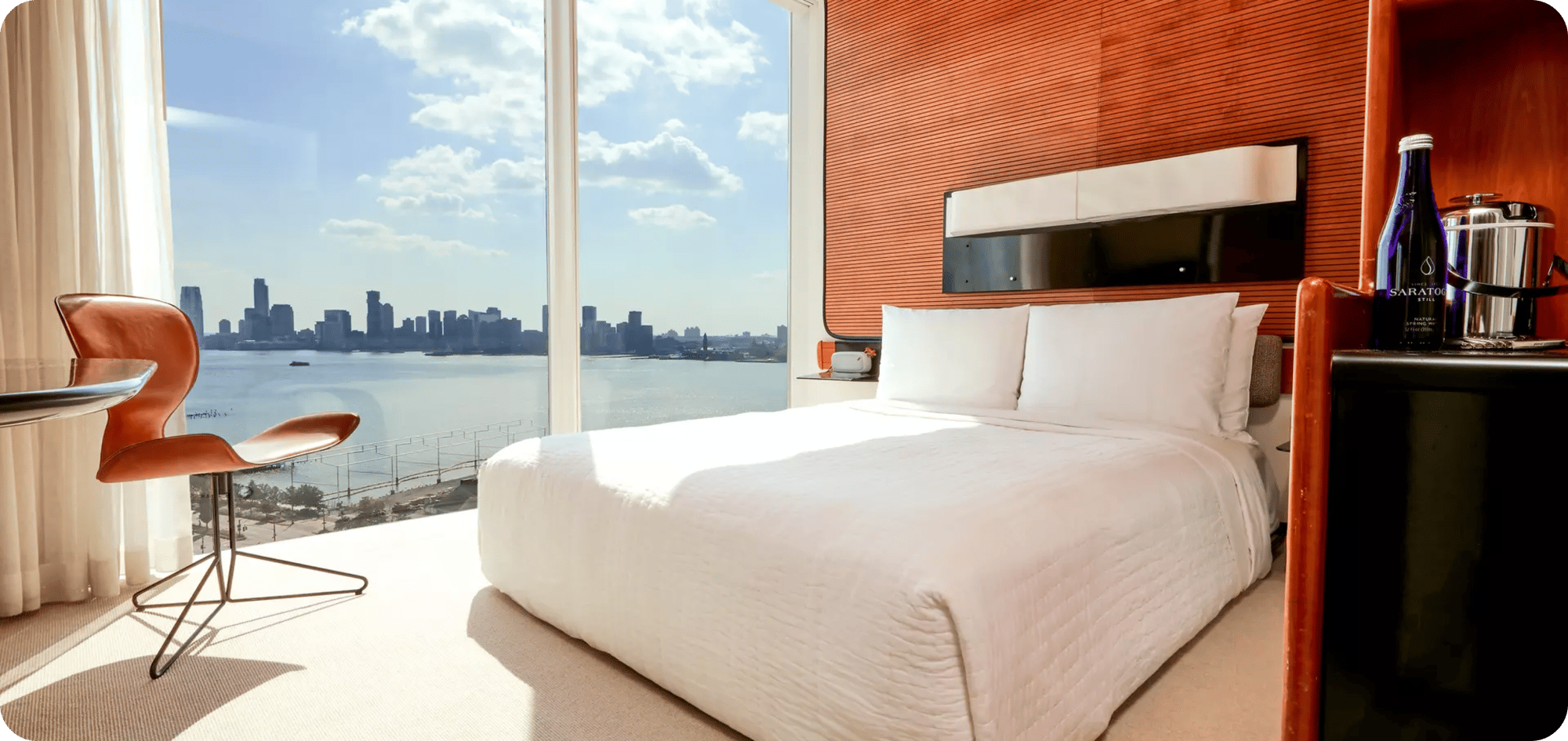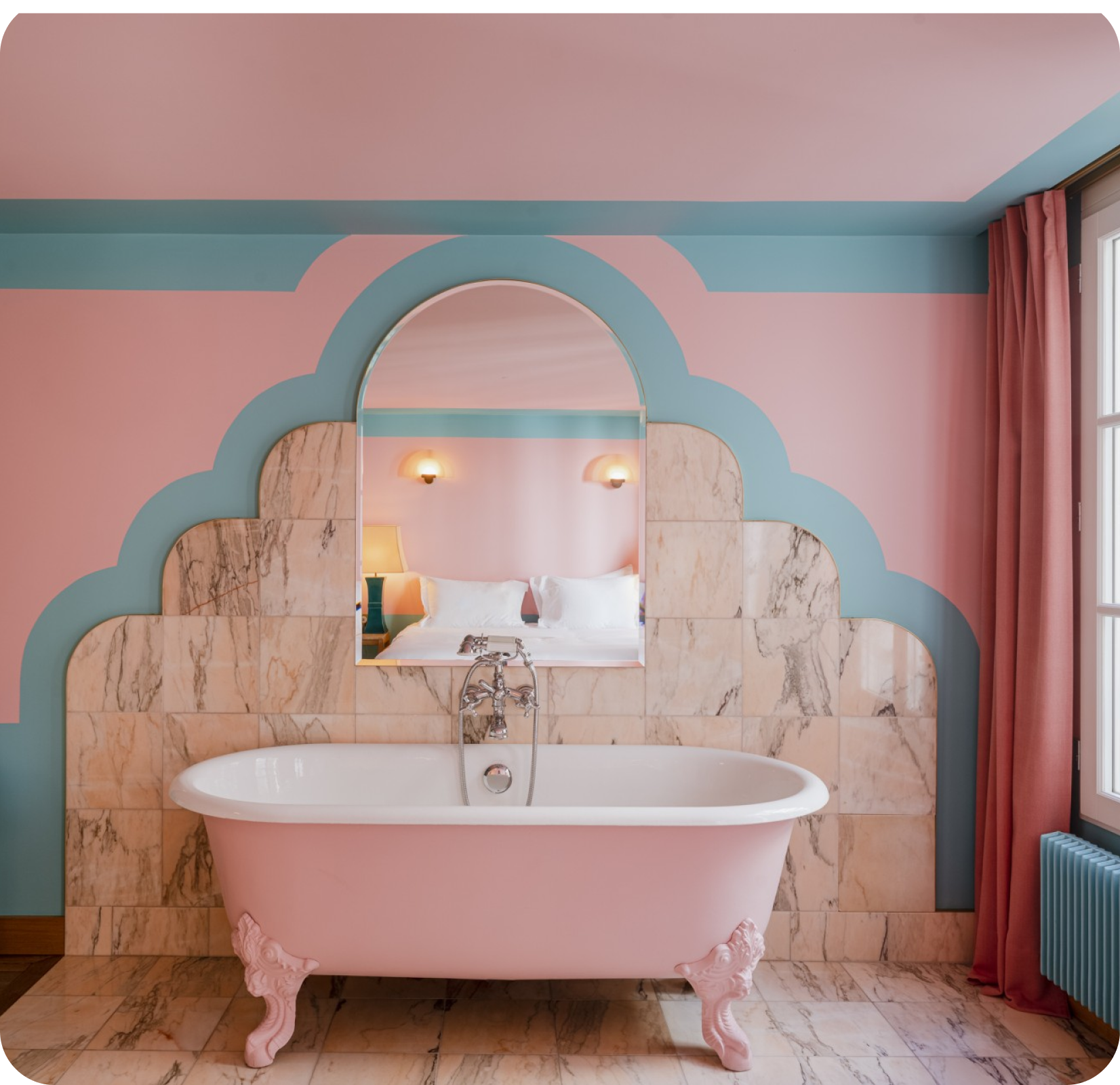The evolution of hospitality and the rise of lifestyle hotels

Opinion Piece by David Lebée, Founder and CEO of Dayuse
The hotel industry from the 1980s to today has been marked by a remarkable transformation in how hotels are designed, managed, and experienced. Its history reflects the changes of our times, whether societal or technological. From standardized places, it has extraordinarily expanded into unique environments. As a teenager, I was fascinated by the evolution of hospitality. It sparked a deep desire within me to join this industry.
The Rise of Lifestyle Hotels
Traditional and large chain hotels used to dominate the industry. They were often perceived as practical and functional places. No matter where one traveled, hotel rooms would look very similar and provide consistency. The shift started after Bill Kimpton stayed in more intimate hotels while traveling in Europe.* Once he returned to the States, he pioneered the concept of boutique hotels in San Francisco. They were characterized by their unique personality and distinctive "home away from home" feeling.
Several years later, across the country, Ian Schrager embarked on a journey of innovation, introducing pioneering concepts and shaping evolving guest preferences and industry standards. Recognized as a co-creator of the "boutique hotel" concept, his influence persists, continuously reshaping the hospitality landscape. Another figure in the realm of hospitality who perpetually ignites my inspiration is Andre Balazs. Properties like The Mercer, Chateau Marmont, and The Standard have redefined luxury and lifestyle hospitality, setting new benchmarks in the field.


Impact on the Industry
Consumer habits have been evolving and thematic, design-driven hotels have become the new norm. What distinguishes these new lifestyle hotels from traditional ones is their strong personality, individuality, and character. Lifestyle and boutique hotels have challenged traditional hotel models, driving competition, and pushing larger chains, such as Accor, Marriott, and Hilton, to adapt. By merging design, music, ambiance, and gastronomy, they have created unique, immersive experiences for consumers.
As a result of this evolution, industry giants have expanded their portfolios, reflecting the significant influence of lifestyle hotels on the broader hospitality landscape. They have also driven various trends in the hospitality sector such as storytelling and personalization, integrating sustainable practices into their operations, and technology integration.
The emergence of fashion and luxury brand hotels signifies a paradigm shift in the concept of luxury, emphasizing experiential elements over mere opulence. These hotels offer guests the opportunity to engage with the brand in a more intimate and immersive manner, reflecting the evolving definition of modern luxury.
.png?width=1652&height=1600&name=costes%20Picture%20(6).png)
.png?width=1652&height=1600&name=Picture%20(3).png)
The Dayuse Perspective
In the early days of my career, I had the privilege of working for some influential figures. For a few years, I worked at a four-star hotel owned by Gilbert and Thierry Costes, where I discovered the transformative power of hospitality. Pioneers in the boutique hotel revolution, this family invented the hotel DJ and soundtrack, and even bespoke hotel scent. This experience shaped my vision, instilling in me a passion for crafting immersive stays that resonate deeply with guests. Equally influential was my time at Hôtel Amour, a place that remains close to my heart. Art isn't just displayed there—it's celebrated. Every corner is adorned with creativity, every space a canvas for artistic expression. Hôtel Amour is more than just a place to stay; it's a sanctuary where art comes to life, infusing every guest experience with inspiration and wonder.
Both the Costes family and Emmanuel Delavenne (Hôtel Amour) epitomize the essence of hospitality evolution, seamlessly blending art, design, and service to create unforgettable experiences. The New York Times once called Jean-Louis Costes "a Parisian version of Ian Schrager” and I couldn't agree more! My time in both hotels profoundly influenced my understanding of the industry, shaping my vision for immersive and modern stays and leading to the creation of Dayuse, an avant-garde concept in local tourism. Our core mission is to empower local residents to embrace these spaces as their own, with the vision of generating up to 25% of additional hotel revenue with a loyal local clientele within 10 years. This strategic focus aligns with the evolving trend where hotels are redefining themselves as vibrant daytime living destinations, rather than solely nocturnal accommodations.
So much more is yet to be invented. The journey ahead is filled with promise and possibility—let's embark on it together!
Source: "Complete Oral History of Boutique Hotels" by Deanna Ting for Skift
